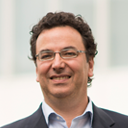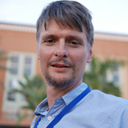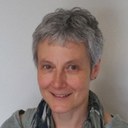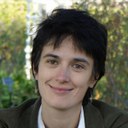Advisory Board
The Advisory Board is comprised of members of the scientific community selected by Idiap’s management for their exceptional skills and avant-garde vision. Although their role is strictly advisory, their advice is frequently sought and proves to be invaluable when making decisions regarding research, training, and technology transfer.

Dr. Alex Acero
Senior Director at Apple, Cupertino, CA, USA
Dr Alex Acero is Sr. Director at Apple, leading the team responsible for speech recognition and synthesis in Siri, Apple’s personal assistant in iPhone, iPad, Apple Watch, Apple TV, Carplay, and Homekit in over 40 languages. Before joining Apple in 2013, he spent twenty years with Microsoft Research, managing research groups in Speech Technology, Natural Language Processing, Machine Translation, Information Retrieval, Multimedia, Communication and Computer Vision. At Microsoft Research, his team members played a key role in the far-field audio system of the Kinect controller for Xbox, which shipped in 2010 and still holds the record for the fastest selling consumer electronics device according to the Guinness World of Records. His team members were also involved in the 2007 Ford Sync’s hands-free voice system, as well as technologies in Bing’s search engine, among others. From 1991-1993 he managed the speech team at Telefonica. He has been granted 150 US patents.
His academic experience in the speech technology field includes being Affiliate Faculty at the University of Washington, and serving in several PhD thesis committees. He is the author of two books, contributed chapters to four other edited books, and has published over 250 technical papers, with an h-index of 55 according to Google Scholar. His team members at Microsoft Research demonstrated in 2010 the superiority of deep neural networks for large vocabulary speech recognition systems, helping shift the field from the Gaussian Mixture Models technology that had dominated since the 1980s, and this was recognized with the 2013 IEEE Signal Processing Society Best Paper Award.
He is an IEEE Fellow, ISCA Fellow, and has held numerous positions within the IEEE Signal Processing Society, including President, Vice President Technical Directions, Director of Industrial Relations, member of the Board of Governors, member and chair of its Speech Technical Committee.

Dr. Alessandro Curioni
IBM Fellow, Vice President Europe and Director IBM Research, Zurich, Switzerland
Dr. Alessandro Curioni is an IBM Fellow, Vice President of IBM Europe and director of the IBM Research Lab in Zurich, Switzerland. He was also recently appointed as the Watson IoT Research Relationship Executive.
Dr. Curioni is an internationally recognized leader in the area of high-performance computing and computational science, where his innovative thinking and seminal contributions have helped solve some of the most complex scientific and technological problems in healthcare, aerospace, consumer goods and electronics. He was a member of the winning team recognized with the prestigious Gordon Bell Prize in 2013 and 2015.
Dr. Curioni received his undergraduate degree in Theoretical Chemistry and his PhD from Scuola Normale Superiore, Pisa, Italy. He started at IBM Research – Zurich as a PhD student in 1993 before officially joining as a research staff member in 1998. His most recent position was Head of the Cognitive Computing and Computational Sciences department.

Dr. Georges Kotrotsios
Vice President Marketing and Business Development, Member of Executive Board of Centre Suisse d'Electronique et de Microtechnique SA (CSEM), CH
Dr. Georges Kotrotsios dedicated his professional life to the creation of economic and societal value through high-end technology. The last 12 years serves as member of the Executive Board of CSEM, a major Swiss R&I -Research and Innovation - center in microtechnologies and smart digital systems.
He serves on the boards of various national and international bodies closely linked to the exploitation of technologies and to related policies. In 2020, 2016 and 2012 he chaired the Alliance of Fraunhofer - Microelectronics, CEA-LETI, VTT and CSEM on Smart Systems (HTA); He is Member of the Board of Directors of the Swiss nation-wide initiative, AM-TTC Alliance, the umbrella association of the Swiss technology transfer centres for Advanced Digital Manufacturing.
Between 2009 and 2018 he served as member of the Executive Board of EARTO, the European Association of Research and Technology Organisations (www.earto.eu). Georges recently authored the monograph “Data, New Technologies and Global Imbalances”. In 2015 he has been elected member of the Swiss Academy of Engineering Sciences.

Prof. Anil K. Jain
Distinguished Professor, Department of Computer Science & Engineering, Michigan State University, USA
Prof. Anil K. Jain is a University Distinguished Professor in the Department of Computer Science at Michigan State University where he conducts research in pattern recognition, computer vision and biometrics.
He has received Guggenheim fellowship, Humboldt Research award, Fulbright fellowship, IEEE Computer Society Technical Achievement award, W. Wallace McDowell award, IAPR King-Sun Fu Prize, and IEEE ICDM Research Award for contributions to pattern recognition and biometrics. He served as Editor-in-Chief of the IEEE Trans. Pattern Analysis and Machine Intelligence and is a Fellow of ACM, IEEE, AAAS, IAPR and SPIE.
Holder of eight patents in biometrics, he is a Fellow of the National Academy of Inventors. ISI has designated him as a highly cited author. He served as a member of the National Academies panels on Information Technology, Whither Biometrics, and Improvised Explosive Devices (IED) and was a member of the Defense Science Board. He is a member of the National Academy of Engineering.

Prof. Neil Lawrence
DeepMind Professor of Machine Learning at the University of Cambridge, UK
Prof. Neil Lawrence is DeepMind Professor of Machine Learning at the University of Cambridge, a Visiting Professor at the University of Sheffield, and the Co-host of the podcast “Talking Machines”.
He received his bachelor’s degree in Mechanical Engineering from the University of Southampton in 1994. Following a period as an field engineer on oil rigs in the North Sea he returned to academia to complete his PhD in 2000 at the Computer Lab in Cambridge University. He spent a year at Microsoft Research in Cambridge before leaving to take up a Lectureship at the University of Sheffield, where he was subsequently appointed Senior Lecturer in 2005. In January 2007 he took up a post as a Senior Research Fellow at the School of Computer Science in the University of Manchester where he worked in the Machine Learning and Optimisation research group. In August 2010 he returned to Sheffield to take up a collaborative Chair in Neuroscience and Computer Science.
Neil’s main research interest is machine learning through probabilistic models. He focuses on both the algorithmic side of these models and their application. He has a particular focus on applications in personalized health and computational biology, but happily dabbles in other areas such as speech, vision and graphics.
Neil was Associate Editor in Chief for IEEE Transactions on Pattern Analysis and Machine Intelligence (from 2011-2013) and is an Action Editor for the Journal of Machine Learning Research. He was the founding editor of the Proceedings of Machine Learning Research (2006) and is currently series editor. He was an area chair for the NIPS conference in 2005, 2006, 2012 and 2013, Workshops Chair in 2010 and Tutorials Chair in 2013. He was General Chair of AISTATS in 2010 and AISTATS Programme Chair in 2012. He was Program Chair of NIPS in 2014 and was General Chair for 2015. He is one of the founders of the DALI Meeting and Data Science Africa.

Dr. Fabienne Marquis Weible
Director of the Swiss Association for Horological Research, Engineer at EPFL, CH
After completing engineering studies at the EPFL in physics, Dr. Fabienne Marquis Weible joined the Max Planck Institute für Quantenoptik in Munich where she worked in the field of nonlinear optics on a PhD degree that she obtained at the Ludwig Maximilian University.
She spent one year at the Optical Sciences Center of the University of Arizona as a visiting scientist before joining the EPFL where she was involved for fourteen years in different positions related to the field of optics : her research and her teaching focused on applications of lasers and optics in the biomedical field; as an adjunct director, she managed the Optics Priority Program funded by the ETH-Board. Her interest in the management of science lead her to work for the Rectorate of the University of Neuchâtel where she was delegate for scientific affairs, and to the general direction of the Haute Ecole Arc where she coordinated for four years the research activities in the different domains represented within the institution - engineering, applied arts, management and health care. Since 2009, she is the director of the Association Suisse pour la Recherche Horlogère, where she manages collaborative research projects for a network of about 150 members from the swiss watch industry. Promoting a science-based approach, her current interest is to strengthen the position of the swiss watch manufacturing industry by mastering materials behavior and production processes to ensure the requested functions of mesoscale mechanisms. Fabienne Marquis Weible has been active in numerous committees, among which the boards of the Swiss Society for Optics (1995- 2007) and of the Société Suisse de Chronométrie (since 2009), the Conseil de la Recherche of the HES-SO (2004-2008), the Conseil de la Fondation Suisse pour la Recherche en Microtechnique FSRM (since 2009), and the Conseil de l'Université de Neuchâtel (2013-2017). Since 2015, she is a member of the Swiss Academy of Technical Sciences SATW, whose board she joined in 2018.

Prof. Klaus-Robert Müller
Professor for Computer Science, TU Berlin, Director, Bernstein Focus on Neurotechnology, Berlin, Germany
Prof. Klaus-Robert Müller has been Professor for Computer Science at TU Berlin since 2006; at the same time he is directing the Bernstein Focus on Neurotechnology Berlin.
Since 2012 he is distinguished professor at Korea University within the WCU Program. He studied physics in Karlsruhe from 1984-89 and obtained his PhD in Computer Science at TU Karlsruhe in 1992. After a PostDoc at GMD-FIRST, Berlin, he was a Research Fellow at University of Tokyo from 1994-1995. From 1995 he built up the Intelligent Data Analysis (IDA) group at GMD-FIRST (later Fraunhofer FIRST) and directed it until 2008. 1999-2006 he was a Professor at University of Potsdam. In 1999, he was awarded the Olympus Prize He is an author of more than 300 peer reviewed papers and has edited several books and special issue. In 2012 he was elected to be a member of the German National Academy of Sciences – Leopoldina. His research interests are intelligent data analysis, machine learning, big data, signal processing and Brain Computer Interfaces. Recently we have expanded his interests towards the application of Machine Learning techniques in quantum physics and material sciences.

Prof. Stefan Roth
Professor of Computer Science and Chair of the Department of Computer Science at TU Darmstadt, DE
Prof. Stefan Roth is Professor of Computer Science and Chair of the Department of Computer Science at TU Darmstadt, Germany and leads and lead the Visual Inference Lab.
He received the Diplom degree in Computer Science and Engineering from the University of Mannheim, Germany in 2001. In 2003 he received the ScM degree in Computer Science from Brown University, and in 2007 the PhD degree in Computer Science from the same institution. Since 2007 he is on the faculty of Computer Science at Technische Universität Darmstadt, Germany (Juniorprofessor 2007-2013, Professor since 2013). His research interests include probabilistic and statistical approaches to image modeling, motion estimation and tracking, as well as object recognition and scene understanding. He received several awards, including honorable mentions for the Marr Prize at ICCV 2005 (with M. Black) and ICCV 2013 (with C. Vogel and K. Schindler), the Olympus-Prize 2010 of the German Association for Pattern Recognition (DAGM), and the Heinz Maier-Leibnitz Prize 2012 of the German Research Foundation (DFG). In 2013, he was awarded a starting grant of the European Research Council (ERC). He regularly serves as an area chair for CVPR, ICCV, and ECCV, and is member of the editorial board of the International Journal of Computer Vision (IJCV), the IEEE Transactions on Pattern Analysis and Machine Intelligence (TPAMI), and PeerJ Computer Science.

Prof. Matthew Turk
President of the Toyota Technological Institute at Chicago (TTIC), USA
Prof. Matthew Turkis the President of the Toyota Technological Institute at Chicago (TTIC), a graduate academic institution that focuses on research in computer science theory, artificial intelligence, machine learning, speech and language processing, computer vision, robotics, computational biology, and related areas. He was formerly the Chair of the Department of Computer Science at the University of California, Santa Barbara, where he co-directed the UCSB Four Eyes Lab, focused on the "four I's" of Imaging, Interaction, and Innovative Interfaces. Prior to that, he was a founder of the Vision Technology Group at Microsoft Research. He has a BS from Virginia Tech, an MS from Carnegie Mellon University, and a PhD from the Massachusetts Institute of Technology, and he did a postdoc at LIFIA/ENSIMAG in Grenoble, France.
Prof. Turk has a range of research interests including computer vision, multimodal interaction, augmented and virtual reality. He has served on several journal editorial boards and as General or Program Chair of several major conferences, including the ACM Multimedia Conference, the IEEE Conference on Automatic Face and Gesture Recognition, the ACM International Conference on Multimodal Interaction, the IEEE Conference on Computer Vision and Pattern Recognition, and the IEEE Winter Conference on Applications of Computer Vision. He co-founded an augmented reality startup company in 2014 that was acquired by PTC Vuforia in 2016. Dr. Turk has received several best paper awards, and he is an ACM Fellow, an IEEE Fellow, an IAPR Fellow, and the recipient of the 2011-2012 Fulbright-Nokia Distinguished Chair in Information and Communications Technologies.

Prof. Mihaela van der Schaar
John Humphrey Plummer Professor of Machine Learning, Artificial Intelligence and Medicine at the University of Cambridge, UK
Prof. Mihaela van der Schaar Professor van der Schaar is John Humphrey Plummer Professor of Machine Learning, Artificial Intelligence and Medicine at the University of Cambridge and a Turing Faculty Fellow at The Alan Turing Institute in London, where she leads the effort on data science and machine learning for personalized medicine. She is also a Chancellor's Professor at UCLA. She was elected IEEE Fellow in 2009.
She has received numerous awards, including the Oon Prize on Preventative Medicine from the University of Cambridge (2018), an NSF Career Award (2004), 3 IBM Faculty Awards, the IBM Exploratory Stream Analytics Innovation Award, the Philips Make a Difference Award and several best paper awards, including the IEEE Darlington Award. She holds 35 granted USA patents.
In 2019, she was identified by National Endowment for Science, Technology and the Arts as the female researcher based in the UK with the most publications in the field of AI. She was also elected as a 2019 "Star in Computer Networking and Communications".
Her research expertise spans signal and image processing, communication networks, network science, multimedia, game theory, distributed systems and machine learning. Her current research focus is on machine learning, AI and operations research for healthcare and medicine. For more details, see her website: http://www.vanderschaar-lab.com/

Prof. Dr. Stefan Wrobel
Professor of Computer Science at University of Bonn and Director of the Fraunhofer Institute for Intelligent Analysis and Information Systems IAIS, DE
Prof. Dr. Stefan Wrobel is Professor of Computer Science at University of Bonn and Director of the Fraunhofer Institute for Intelligent Analysis and Information Systems IAIS.
He studied computer science and artificial intelligence in Bonn and Atlanta, Georgia/USA (M.S., Georgia Institute of Technology) and obtained his PhD at the University of Dortmund. After several years in research and as start-up co-founder, he was appointed professor at Magdeburg University, before taking up his current position. In addition, he is one of the directors of the Bonn-Aachen International Center for Information Technology (b-it).
Professor Wrobel’s work is focused on intelligent systems and their productive use in business applications, focusing in particular on innovations in Machine Learning, Artificial Intelligence and their foundations in big data, data ecosystems, and enterprise structures. He is the author of a large number of publications on data mining and machine learning and is on the Editorial Board of several leading academic journals in his field. He is co-speaker of ML2R, one of the German National Excellence Centers in Machine Learning, and speaker of the Fraunhofer Alliance on Big Data and AI.